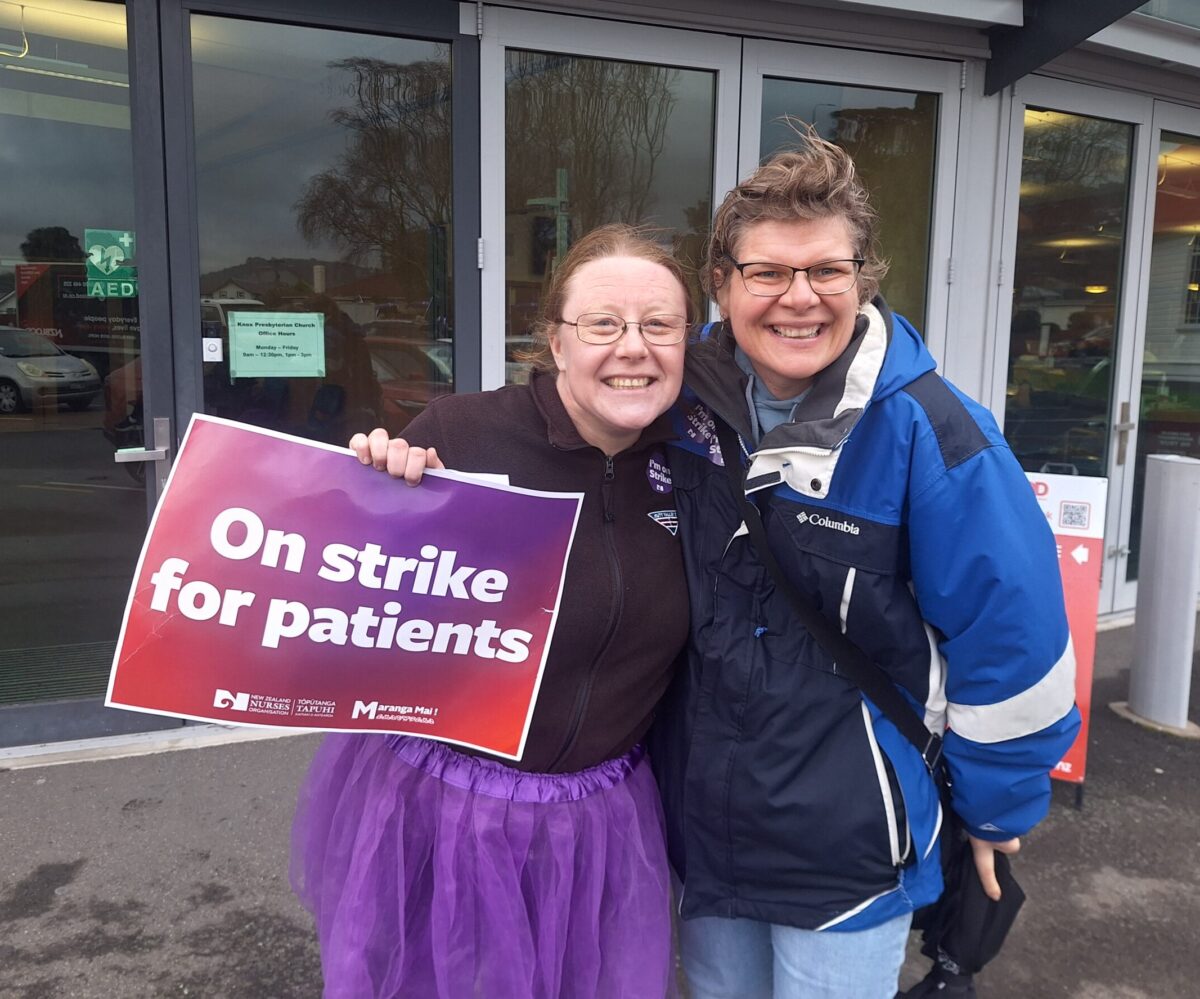Nurses and kaiāwhina across picket lines on Thursday were thrilled and vindicated Te Whatu Ora had been forced to acknowledge their everyday reality — Aotearoa’s hospitals are dangerously understaffed.
But they were also infuriated by Minister of Health Simeon Brown’s electorate office sign blaming nurses on strike for disrupting patients.
“Anyone who’s sat in ED for six or seven hours would know there are staff shortages,” said Margaret Donovan, a Lower Hutt nurse of 53 years — just three shifts away from retirement.
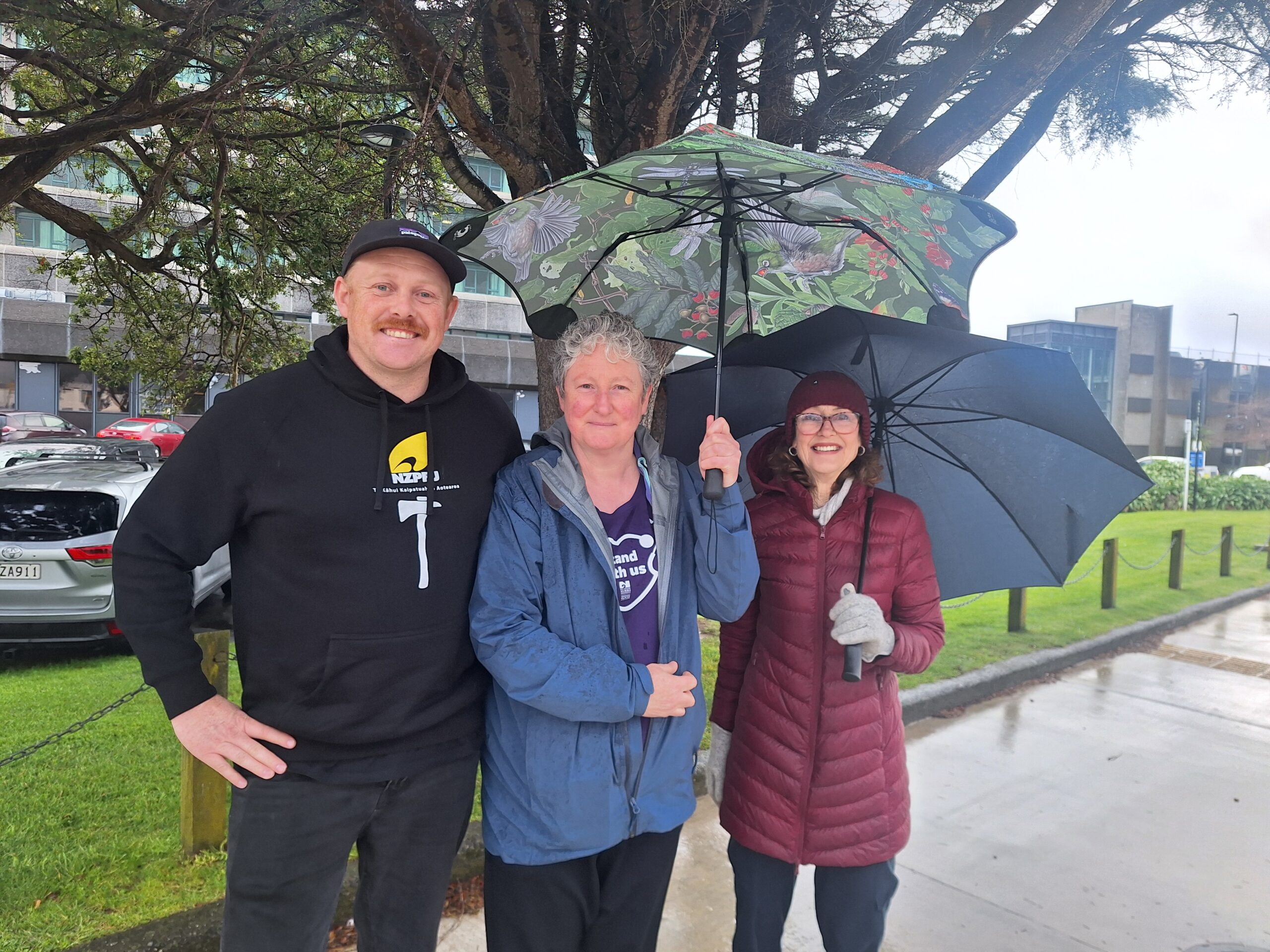
“The data is all there and I was thrilled to see the apology forced on them by the Ombudsman,” she told Kaitiaki from Hutt Hospital’s picket line — where she was one of the first strikers despite pouring rain.
Te Whatu Ora this week apologised to Tōpūtanga Tapuhi Kaitiaki o Aotearoa – NZNO for acting “unreasonably” in refusing to release its 2024 safe-staffing data until ordered to by the Ombudsman.
‘The figures validate what we’ve all been saying. Now we just need the Government to come on board because they have got no idea what nurses do.’
NZNO strategic researcher Nathalie Jacques — who obtained the figures — has described it as “gaslighting” nurses as they tried to hold wards together under impossible conditions, only to be told there were too many of them.
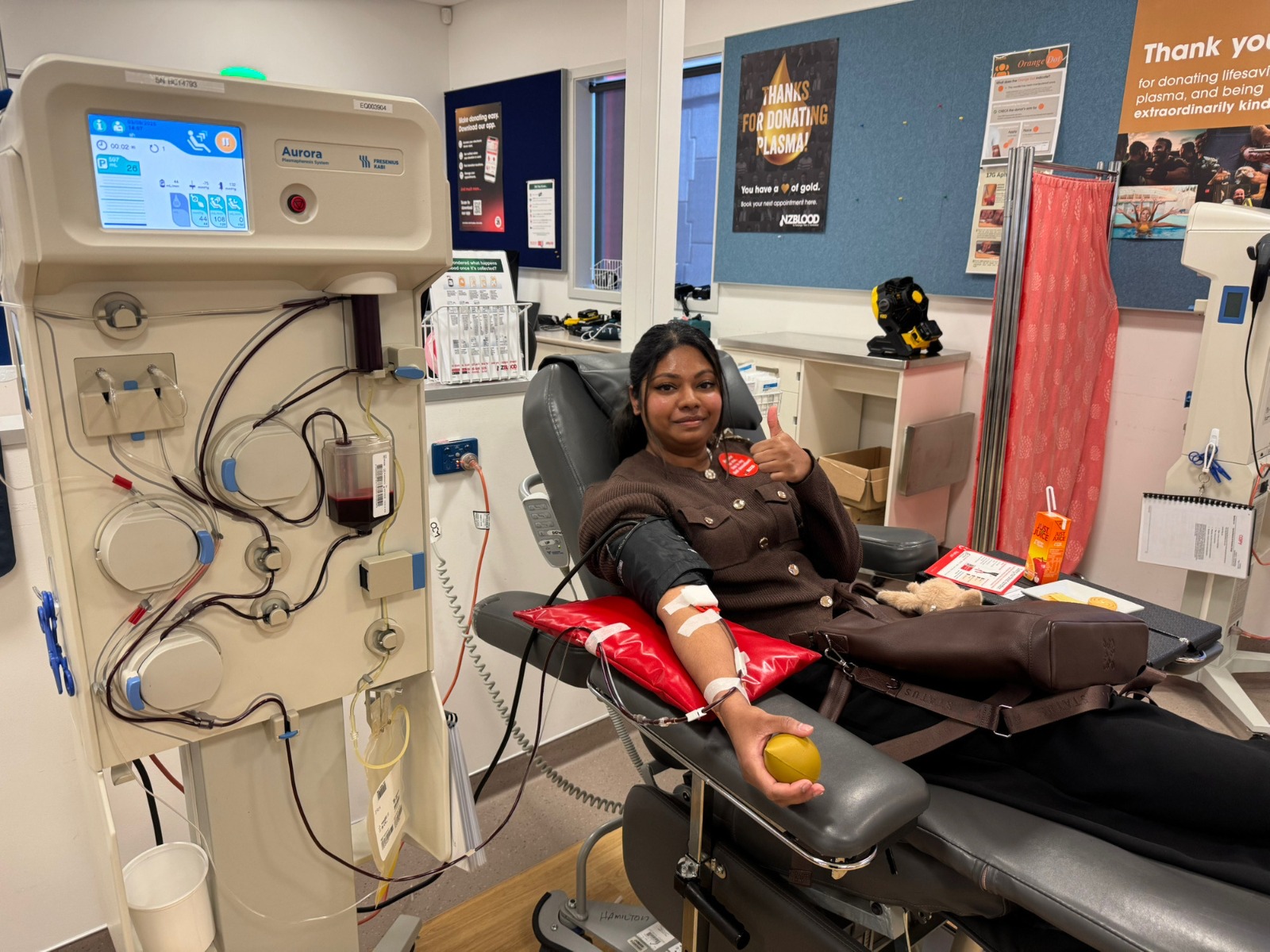
The numbers were, of course, damning, and proved beyond doubt how dangerously understaffed our hospitals are — a fact frontline workers knew but Te Whatu Ora has consistently denied, claiming it was fully staffed up with nurses.
Day shifts across all wards were understaffed 51 per cent of the time last year, while all evening shifts were understaffed 35 per cent of the time. Several acute mental health units were almost always understaffed last year.
Speaking from the picket lines, Hutt nurse Gina Bryden said the apology and figures revealed the truth, at last.
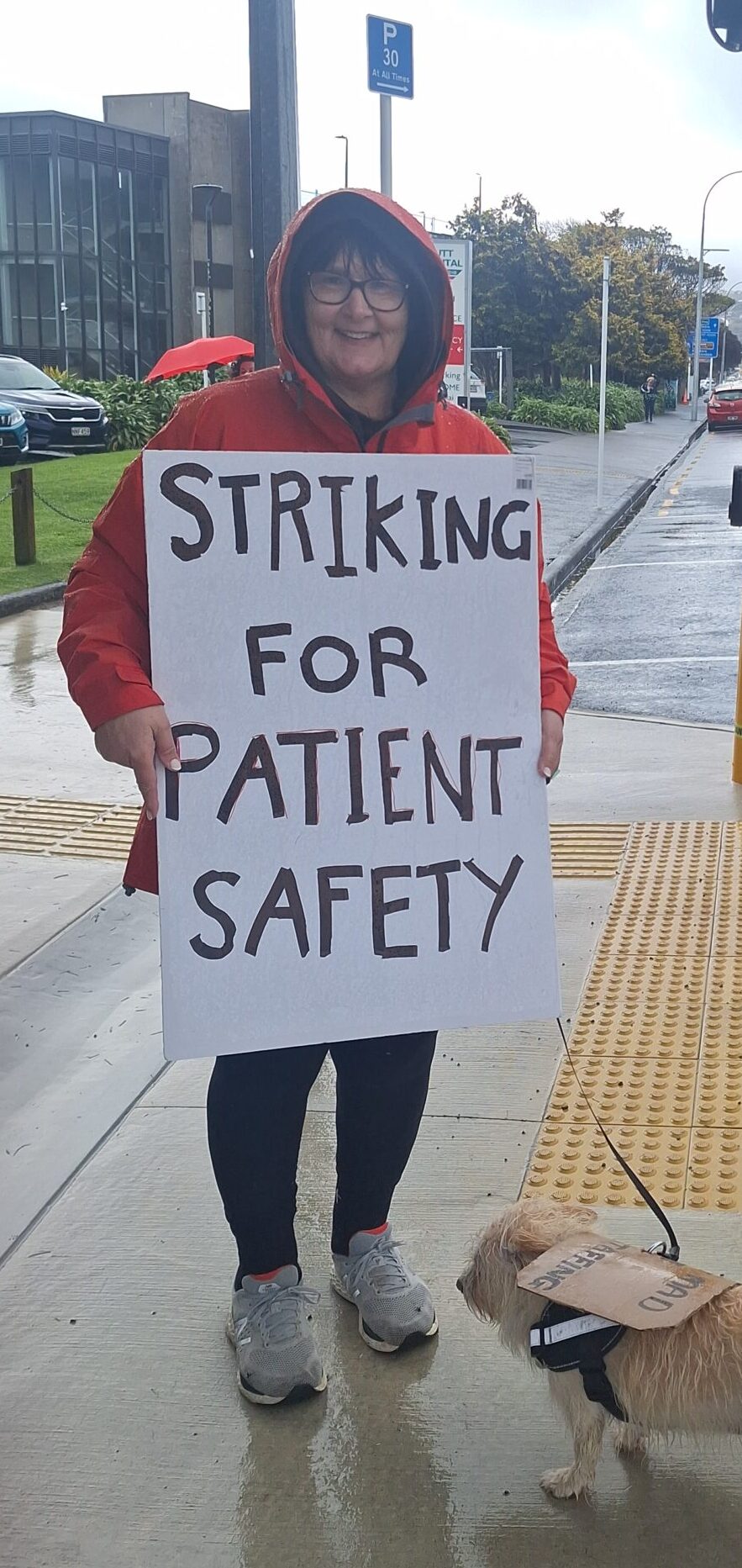
“They validate what we’ve all been saying. Now we just need the Government to come on board because they have got no idea what nurses do,” Bryden said.
“They say we don’t care about patients, but we are striking because we care about patients.”
Meanwhile, Te Whatu Ora chief executive Dale Bramley said Te Whatu Ora planned to hire more frontline staff, including nurses.
“We do recognise that a number of our services are under pressure, because of rising demands,” he told RNZ.
‘Offensive and alienating’
The revelations came a day after Minister of Health Simeon Brown baited striking nurses outside his Pakuranga electorate office with a large sign accusing them of disrupting thousands of patients.
‘I’m really upset at being accused of not caring for my patients. That couldn’t be further from the truth.’
NZNO delegate Maree Hunt, also on the picket line, said it was “really offensive” and alienating.
“We don’t want to make people wait — we don’t want to cause disruption. We’re doing this for our patients.”
Hunt told Kaitiaki she would love to invite Brown on shift, “to see how he copes” with staffing levels — an invitation Kaitiaki has passed on.

“We’ve had a really rough week — we’ve got flu and COVID on the ward, we’ve got a full ward. It’s so busy every day.”
Others, like Hutt nurse Rebekah Noakes, chose to give blood in response.
“Now I’m really upset at being accused of not caring for my patients. That couldn’t be further from the truth — it’s for our patients we are striking.”
‘I would really like to take Simeon on a shift with me, to see how he copes.’
Noakes said she also wanted to give back as needed blood transfusions when she gave birth to her daughter.
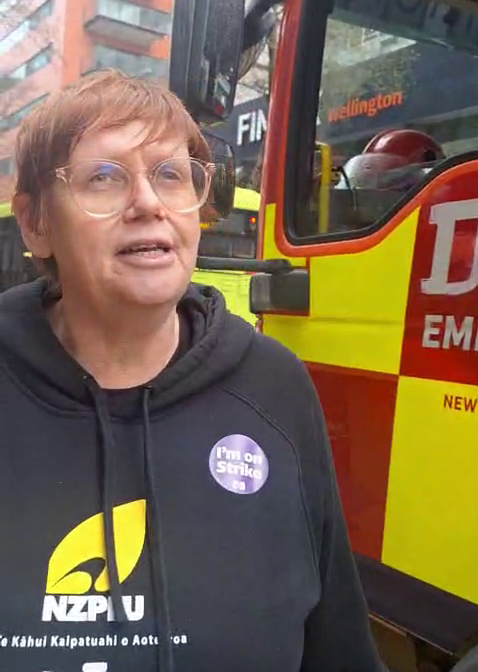
The strike hit the streets of Wellington city as members encouraged Willis Street foot traffic to sign the Buller Declaration/Patient Voice Aotearoa petition — gaining a whopping 1000-plus more signatures ahead of it being presented to Parliament on November 18.
Professional Firefighters Union secretary Joanne Watson told Kaitiaki firefighters were turning out to support striking nurses around the country.

“We have very similar issues — we are fighting for safe staffing, and we’re here to support nurses in their fight for safe staffing.”
NZNO has been in negotiations for a 2024–26 collective agreement with Te Whatu Ora for a year, with 28 days of talks, including 13 supported by the Mediation Service and three by the Employment Relations Authority.
NZNO and Te Whatu Ora have today agreed to return to bargaining “as soon as possible”.
The Association of Salaried Medical Specialists is also considering strike action over its own pay negotiations.
The unrest comes as health and hospitals are again found to be among the most concerning issues for New Zealanders, the latest Ipsos poll reveals.
Listen to NZNO researcher Nathalie Jacques break down the figures on RNZ here.
- This story was updated later on September 5 to say NZNO-Te Whatu Ora bargaining had resumed.



